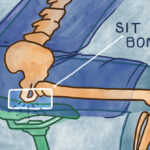Pocket Bikes, also known as mini motorcycles, have surged in popularity, captivating enthusiasts with their small size and affordability. However, when it comes to legality and road use, the situation becomes complex, particularly in areas like Connecticut. This article delves into the legal gray area surrounding pocket bikes and similar motorized scooters, drawing insights from a research report to clarify their status under motor vehicle laws.
Understanding the Legal Landscape for Pocket Bikes
Pocket bikes, miniature replicas of racing motorcycles, and motorized scooters occupy a peculiar position within legal frameworks. Connecticut law, like many others, mandates the registration of any motor vehicle operating on public highways. Yet, the definition of a “motor vehicle” and its exceptions create ambiguity for these smaller, non-traditional vehicles.
The core issue stems from whether pocket bikes and motorized scooters are classified as “motor vehicles” under the law. Connecticut General Statutes define a motor vehicle broadly as any vehicle propelled by non-muscular power. However, this definition includes a significant carve-out for vehicles “not suitable for operation on a highway.” This exception is where pocket bikes and motorized scooters often fall, leading to a legal limbo.
What Makes a Vehicle “Suitable” for Highway Use?
The Department of Motor Vehicles (DMV) in Connecticut holds the authority to determine a vehicle’s suitability for highway operation. This determination hinges largely on compliance with state equipment laws for motor vehicles. These regulations encompass requirements for essential safety features such as:
- Mufflers and Exhaust Systems: To control noise and emissions.
- Brakes: Meeting specific performance standards for safe stopping.
- Lights: Including headlights, taillights, and turn signals for visibility.
Pocket bikes and motorized scooters are generally not manufactured to meet these stringent equipment requirements. Furthermore, they typically lack Vehicle Identification Numbers (VINs), which are mandatory for motor vehicle registration. Manufacturers design pocket bikes primarily for closed-course racing and recreational use, not for legal street transportation.
This image is the logo of the Office of Legislative Research (OLR) in Connecticut, signifying the official source of the research report discussed in the article.
The Moped Misconception and Safety Concerns
Faced with the regulatory challenge of pocket bikes and scooters, some municipalities have attempted to categorize them as “bicycles with helper motors,” or mopeds. This approach, however, presents its own set of problems. Mopeds, while street legal under certain conditions (operator age and licensing), have specific limitations, including a maximum speed of 30 miles per hour. Many pocket bikes can easily exceed this speed, rendering moped regulations inapplicable.
More importantly, classifying pocket bikes as mopeds could inadvertently grant them a legal right to road use, which raises significant safety concerns. Pocket bikes, due to their small size, limited visibility, and often inadequate safety equipment, are inherently more vulnerable in traffic. Their operation on public roads alongside larger vehicles can lead to hazardous situations.
Worcester, Massachusetts Takes Action: A Municipal Ordinance Example
Recognizing the safety and regulatory challenges posed by pocket bikes and motorized scooters, some municipalities have taken direct action to restrict their use on public roads. Worcester, Massachusetts, for example, enacted an ordinance explicitly prohibiting the operation of “motor scooters” on all public and private streets, sidewalks, and public property within the city.
The Worcester ordinance defines “motor scooter” broadly, encompassing most motorized wheeled devices designed for transportation, but specifically excluding:
- Legally defined motorcycles and motorized bicycles (mopeds).
- Registered motor vehicles or vehicles exempt from registration.
- Mobility devices like wheelchairs.
- City-owned vehicles.
Violators of the Worcester ordinance face fines, highlighting the seriousness with which some municipalities are addressing this issue. This type of local regulation reflects a growing trend to manage the use of pocket bikes and scooters in public spaces due to safety and legal ambiguities at the state level.
Navigating the Uncertain Legal Terrain
In conclusion, pocket bikes and motorized scooters exist in a legal gray area in Connecticut and similar jurisdictions. While not explicitly banned from public roads by state statute, their failure to meet motor vehicle equipment and registration requirements effectively renders them illegal for street use in most interpretations of the law. Attempting to regulate them as mopeds is problematic and potentially counterproductive due to speed capabilities and inherent safety concerns.
The example of the Worcester ordinance demonstrates a municipal-level approach to directly address the challenges posed by these vehicles. As pocket bike popularity continues, further legal clarification and potentially more explicit regulations may be necessary to ensure public safety and clearly define where and how these mini machines can be legally operated. For now, potential owners and riders should be acutely aware of the legal uncertainties and inherent safety risks associated with operating pocket bikes on public roads.


